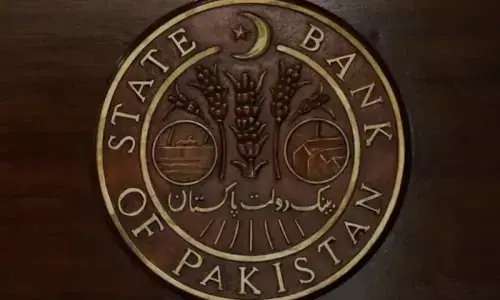PESHAWAR: A judicial official on Thursday overturned the 33-year jail sentence of Shakil Afridi, the doctor who helped the CIA track down former al Qaeda leader Osama bin Laden.
Afridi was sentenced in May last year on charges of colluding with banned militant outfit Lashkar-i-Islam.
Judicial official Commissioner Frontier Crimes Regulation (FCR) Sahibzada Mohammad Anees ruled that the previous judge in the case exceeded his authority when handing down last year’s sentence and ordered a new trial.
“The Commissioner of Peshawar has set aside the decision of the Political Agent of Khyber agency and ordered the retrial,” said Samiullah Afridi, the lawyer for Dr Afridi. “The case has been resent to the Political Agent of Khyber agency who earlier awarded 33 years imprisonment to Shakil Afridi,” he added.
“The assistant political agent played the role of a magistrate for which he was not authorised,” said the written judgment.
A political agent and his assistant are representatives of the government in the semi-autonomous tribal areas, not governed by the country's judicial system but a separate set of laws British-era laws called the Federal Crimes Regulation (FCR).
Samiullah Afridi said he argued that the Assistant Political Agent was not authorised to pass such a long sentence, no proper trial was held and his client was not given an opportunity to defend himself.
Afridi was not present in the court during his trial and could not argue in his own defence, officials said after his conviction. Under the tribal system, he would not have had access to a lawyer.
The appeal also said Afridi had “no association” with Lashkar-e-Islam, according to a copy obtained by news agency AFP.
The appeal, filed on June 1, 2012, said Afridi was kidnapped by Lashkar-e-Islam in 2008 and ordered to pay one million rupees ($10,660).
The tribal court had said that Afridi paid two million rupees to the group and helped to provide medical assistance to militant commanders in Khyber.
The militants have denied any links to Afridi, saying they fined him for overcharging patients, and have threatened to kill him.
Afridi had helped the CIA by running a fake vaccination campaign in Abbottabad a month before the US forces raid on a compound in Abbotabad that killed Osama bin Laden. Then-US Defence Secretary Leon Panetta confirmed Afridi had worked for US intelligence by collecting DNA to verify bin Laden’s presence.
He was picked up by Pakistani intelligence agents from near Peshawar, two weeks after the raid.
He was sentenced on May 23, 2012 to 33 years in prison and fined Rs320,000 on charges of colluding with Lashkar-i-Islam (LI) and its chief, Mangal Bagh. However, the tribal court had not entertained evidence relating to Shakil Afridi’s involvement with the CIA, citing lack of jurisdiction.
Angry US lawmakers saw the sentence as retaliation for his role in bin Laden's capture, and last year threatened to freeze millions of dollars in vital aid to Islamabad.
Afridi remains in custody and is believed to be held under high security at the Peshawar central jail.
Click here to read a copy of the five-page court document originally issued in May 2012 by the Assistant Political Agent in Bara sub-division of Khyber Agency.



































